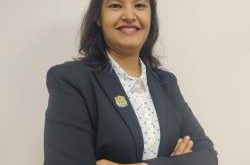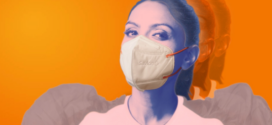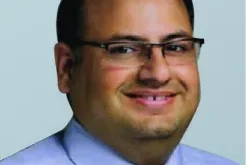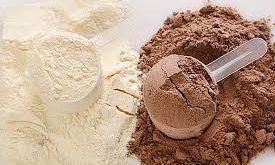Stem cell transplant from a matching donor is most often a patient’s only chance at survival
30 January 2023: Every year, over one lakh people in India are diagnosed with some form of a blood cancer, making it one of the leading causes of cancer-related deaths among children. Most people are unaware that a life-threatening disease like blood cancer can be treated by a stem cell transplant.
February 4th is marked as World Cancer Day, every year. This day is observed to raise awareness about the disease and its increasing burden. Following the theme for 2022-2024 “Close the Care Gap”, DKMS BMST Foundation India, a non-profit organization with a mission to give second chances at life to blood cancer patients, encourages people to register as potential stem cell donors, so they can help patients all over the world.
Patrick Paul, CEO, DKMS-BMST, says, “Every 5 minutes someone in India is diagnosed with blood cancer or a blood disorder. For many patients, the search for a matching blood stem cell donor is the beginning of a race against time. Ethnicity plays a key role in finding a matching donor to facilitate a transplant because patients are most likely to find a match from someone of their own ethnicity. Our focus is always on registering as many committed donors as possible. So far, DKMS-BMST has registered over 80,000 potential donors and has helped 75 patients with a second chance at life.”
One such story is of a blood cancer survivor, Sheeja, a 39-year-old nurse who suffered from Chronic Myeloid Leukemia. Her diagnosis was devastating for her and her family and she urgently needed a stem cell transplant to survive. After struggling for months, she finally found her lifesaver
in Suneel Narayan, a 34-year-old finance professional from Bengaluru, who donated his stem cells and gave Sheeja a second chance at life!
Maheer, a 15-year-old blood cancer survivor says, “I had a tough childhood after being diagnosed with blood cancer at the age of 2. My parents did everything possible to help me, but it wouldn’t have been possible without my genetic twin Dr Sita, from Germany. My parents always say that my life today is a gift from her, because she made the selfless decision of donating her stem cells. DKMS has made this possible and I am forever thankful to them. Today, I am happy and healthy. I have met Dr. Sita and she has become like family to me now!”
Dr. Govind Eriat Nair, Consultant Hematology Hemato-Oncology and Bone Marrow Transplant Gleneagles Global BGS Hospital, Bengaluru informs, “Stem cell transplantation from a related or unrelated donor is a standard treatment that has been utilized in blood cancer patients following 3 to 4 months of chemotherapy to help them recover from the disease. Without the stem cell transplant, the chances of a relapse are quite high. There are many patients who are unable to find an HLA matching donor in their family, in that case, we look for an unrelated matching donor. Every person has a genetic twin somewhere in the world, and through global donor registries we try to get a ‘HLA Type’ matched donor. These donors are heroes, and they support us by donate their healthy stem cells, to patients in need. Thanks to registries like DKMS-BMST, it’s possible to find a matching donor. The need of the hour is to increase awareness and encourage more Indians to register as stem cell donors” by giving their cheek swab sample and help us save more lives.”
Dr Santanu Sen, Bone Marrow Transplant specialist, Hemato Oncologist at Kokilaben Dhirubhai Ambani Hospital, Andheri Mumbai, informs, Stem cell registries can play an important role in helping blood cancer patients by providing a source of potential stem cell donors for bone marrow transplants. A bone marrow transplant, also known as a stem cell transplant, is a treatment that can potentially cure leukemia if it is done in the early stages of the disease and the patient is in a good physical condition. The success of the transplant depends on finding a suitable donor who is a genetic match for the patient. In India, the major problem is that there are a still relatively fewer number of donors that are registered. Registries are constantly working on increasing the number of donors on their databases in order to increase the chances of finding a match for patients in need of a stem cell transplant. Another major issue is that there is still significant reluctance to donate stem cells after a potential match is identified due to irrational fears about the procedure. It is important to note that being a stem cell donor is a relatively simple and safe process, and it can make a huge difference in the life of someone with leukemia.
As per World Marrow Donor Association, more than 40 million potential unrelated donors are listed worldwide with stem cell donor centers and registries, of which only 0.04% are Indians. India with its diverse ethnicity, which results in a unique gene pool and HLA frequency pattern. Studies prove that people from the same ethnic background are more likely to have the same HLA alleles. However, even with a huge burden of blood cancer, India does not have a sufficiently large registry of adult donors. This is because of the lack of awareness about stem cell transplant and the several misconceptions about becoming a blood stem cell donor. Increasing the number of Indian donors in the database will add to the data pool of HLA diversity thus, improving the likelihood of a suitable match.
This World Cancer Day, you can take a pledge to become a potential lifesaver. Registration takes only 5 minutes of your time and only 3 simple steps. If you’re between 18 and 55 years of age, and in general good health, you can register as a blood stem cell donor today!
Step 1: Visit dkms-bmst.org/register, fill up an online form and you will receive a DIY swab kit at home. Step 2: Once you receive the swab kit, fill out the consent form and take a tissue sample from the inside of your cheeks with 3 cotton swabs provided in the kit. Step 3: Send back your swab sample in the pre-paid envelope provided.
Your tissue type will then be analyzed in the DKMS Lab in Germany and your details will be available in the global search for blood stem cell donors. If you are matched with a patient, DKMS-BMST will get in touch with you. Your blood stem cells will be collected from the bloodstream via Peripheral Blood Stem Cell Collection process, which is similar to a blood platelet donation wherein only your stem cells are taken. This is a safe, non-surgical outpatient process.
 Newspatrolling.com News cum Content Syndication Portal Online
Newspatrolling.com News cum Content Syndication Portal Online





